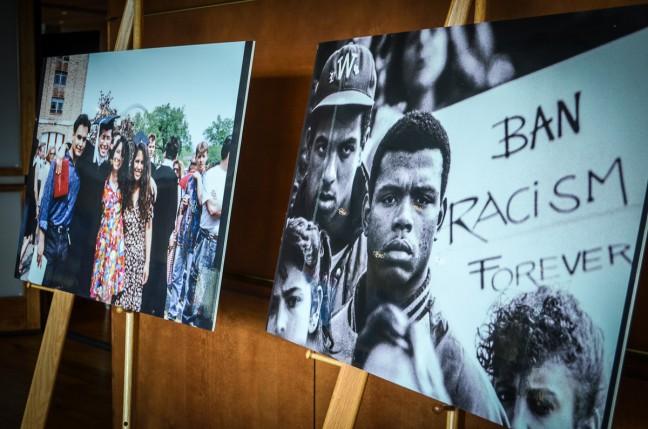The University of Wisconsin’s 15th annual campus-wide diversity forum this week “Diversity and Education Achievement: A Statewide Agenda” focused on educational achievement and fostered discussions on creating a more inclusive campus environment.
The topic of “microaggressions”–the small-scale insults to members of underrepresented groups–was also the topic of a campus forum.
Microaggressions are brief verbal, behavioral or environmental exchanges that intentionally or unintentionally communicate negative or insulting slights to marginalized groups in society, Derald Wing Sue, a professor from Columbia University and keynote speaker, said.
A common examples of microaggressions can be the questions like, “Where were you actually born?” or comments like, “You speak excellent English,” Sue said.
These microaggressions are sometimes perpetuated in higher education, Sue said, citing that although only 33 percent of the population is white Euro-American male, they occupy more than 80 percent of tenured posts.
Sue said when administrators of universities are predominantly white, it sends a message to students and people of color on campus they are not welcome there. It also sends the message if people of color choose to remain on campus, they will be “uncomfortable” and can only go so far up in the hierarchy.
Gabe Javier, director of UW’s Lesbian, Gay, Bisexual, Transgender and Queer Campus Center also said microaggressions can perpetuate a “push out” effect for the LGBTQ community. He emphasized the importance of making the LGBTQ community feel more included and safe both at UW and in lower-level education systems.
The concept of being “pushed out” is driven by the idea that there is an active force pushing LGBTQ students to drop out of school, Brian Juchems, Director of Programs at Gay Straight Alliance for Safe Schools, said.
To try to stop the “push out” effect, Juchems said he works to create programs to make LGBTQ students more resilient through anti-harassment and comprehensive discrimination policies, safe zones, educator training, an inclusive curriculum and student clubs.
In school, LGBTQ people are more likely to experience or witness harassment because of their sexual orientation or gender and are often more likely to consider transferring, Javier said.
He said the way to an inclusive campus climate is the combination of a positive experience and a positive perception of campus climate. This success will lead to a much more positive educational experience, developing a healthy identity and a lower rate of substance abuse, he said.
Gloria Hawkins, UW’s assistant dean of the School of Medicine and Public Health, also spoke about underrepresented student groups in the science, technology, engineering and math fields. Hawkins said the shortage of minorities in the STEM work force in the United States could threaten the nation’s position as a leader innovation and discovery.
“I don’t believe we are giving a high priority to science and technology,” Hawkins said. “We all know that our demographics are rapidly changing in the society where the minority is underrepresented in science and technology. If we do not adequately prepare … for an opportunity in STEM for all, the U.S. will lose more grounds for science and technology.”
Among the other activities included in the Diversity Forum, UW received input on its next diversity plan from campus and community members and saw a showcase from the First Wave Learning Community. The forum also held panels that discussed recruitment of underrepresented students and faculty, closing the achievement and equity gap and empowering students to reach their full potential.


